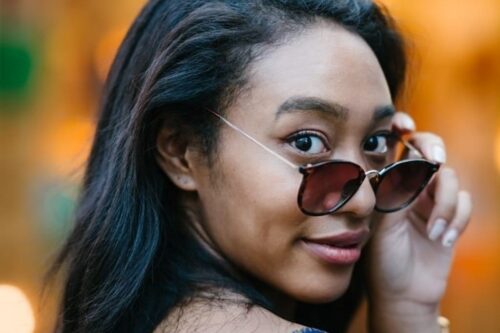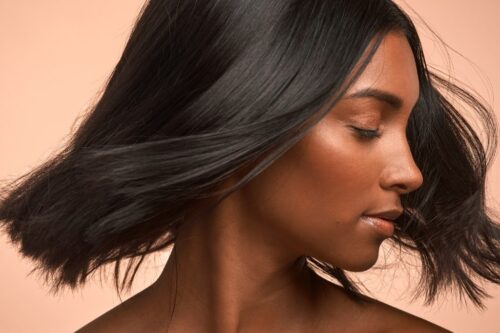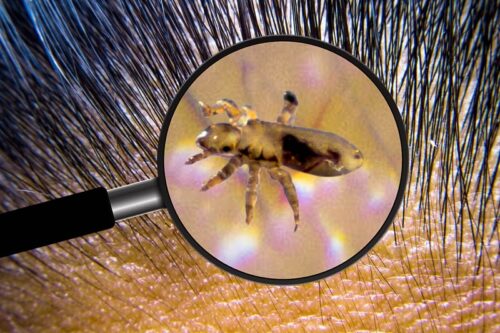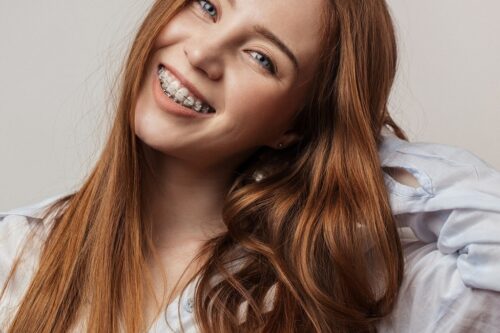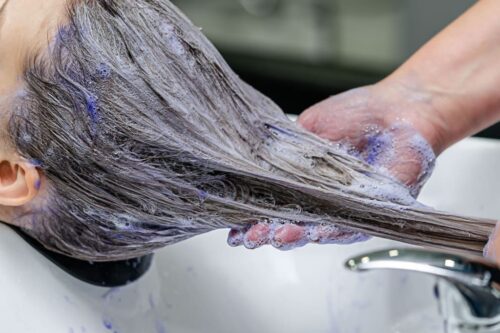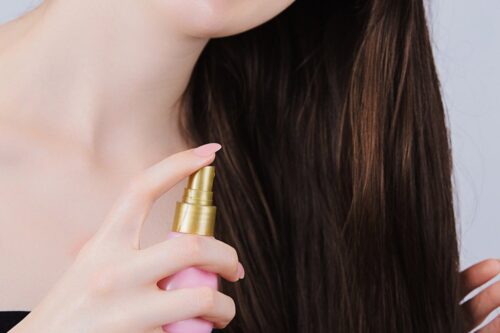Bleaching your hair is a convenient way to temporarily switch up your look. However, it also comes with some risks, including hair breakage and skin irritation. A lot of people don’t know this, but a downside to this is the formation of scabs on your scalp after bleaching.
You may want to bleach your hair to turn it white or lighter color, but without proper prevention, it can cause scabs on the scalp. Scabs are painful and itchy, and they can even cause infection if you don’t treat them timely and properly. But don’t worry, below you’ll learn how to prevent and treat scabs on the scalp after bleaching hair to avoid discomfort.
Is Scab Scalp Normal After Bleaching?
Experiencing irritation and dryness on your scalp after bleaching happens more often than you think.
With that said, scabbing is not normal. If you think you may have that problem, you must address it immediately and get the proper treatment and care.
What Causes Scab Scalp After Bleaching?
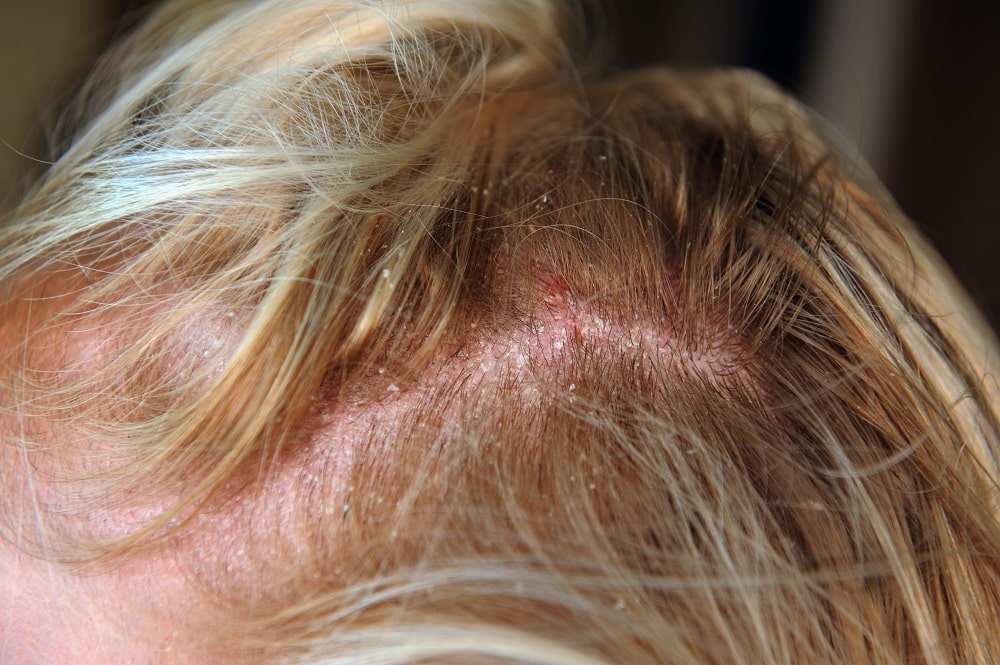
Over-processing the hair is the main culprit of scab scalp after bleaching. Using too much bleach or leaving it on for too long can cause your hair to become brittle and break away from the follicle, leaving scabs on your scalp.
If you already experience skin disorders such as eczema or psoriasis, bleaching your hair will make it worse and likely cause scabs and flare-ups. Although it’s less common, there are certain hairstyles, gels, and other styling products that can also contribute to scabbing the scalp after bleaching.
How to Prevent Scab Scalp After Bleaching
Whenever you color or bleach your hair, it’s essential to follow the instructions listed on your hair products carefully. Don’t leave the bleach on longer than is recommended, and never use a higher concentration than you should.
Here are some tips you can follow to avoid scabs formation after bleaching:
1. Use a Moisturizing Shampoo and Conditioner
When you search for a shampoo or conditioner to help you moisturize your hair, always look for products that contain natural oils, vitamins, and antioxidants. Ensuring your moisturizer doesn’t have any fragrance and is gentle on your scalp will go a long way in preventing scabs.
2. Protect Your Scalp With Ideal Creams
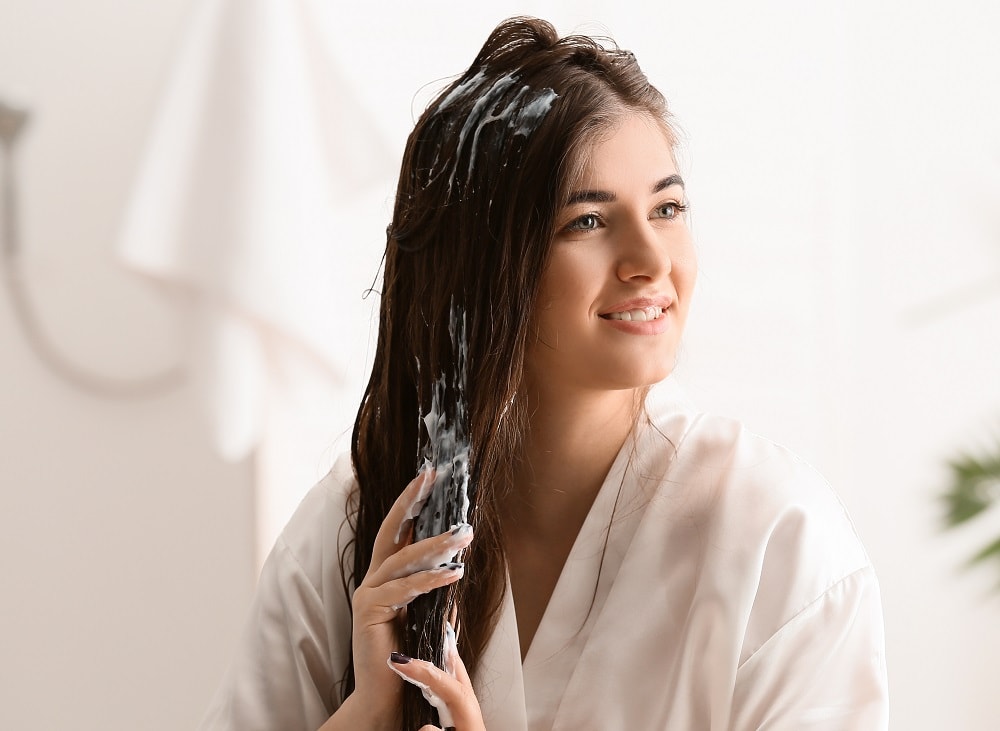
Before you even think of bleaching your hair, get a protective cream for your scalp. Applying the cream will help protect even the most delicate skin and reduce irritation during bleaching.
Make sure to massage the cream on the scalp and hairline while focusing on the areas more prone to irritation. For instance, we recommend you apply more cream on the parts of your scalp where there is more hair.
3. Avoid Heat Styling Tools
Heat styling tools can dry out your hair and scalp in a nutshell, but they will surely worsen the scabbing. Whenever possible, change the blow-dryer for air-drying or use a diffuser.
Besides stripping away the natural oils, heat styling tools can also cause burns on the scalp, leading to scabbing. You don’t want to risk that!
4. Consider Non-abrasive Exfoliation
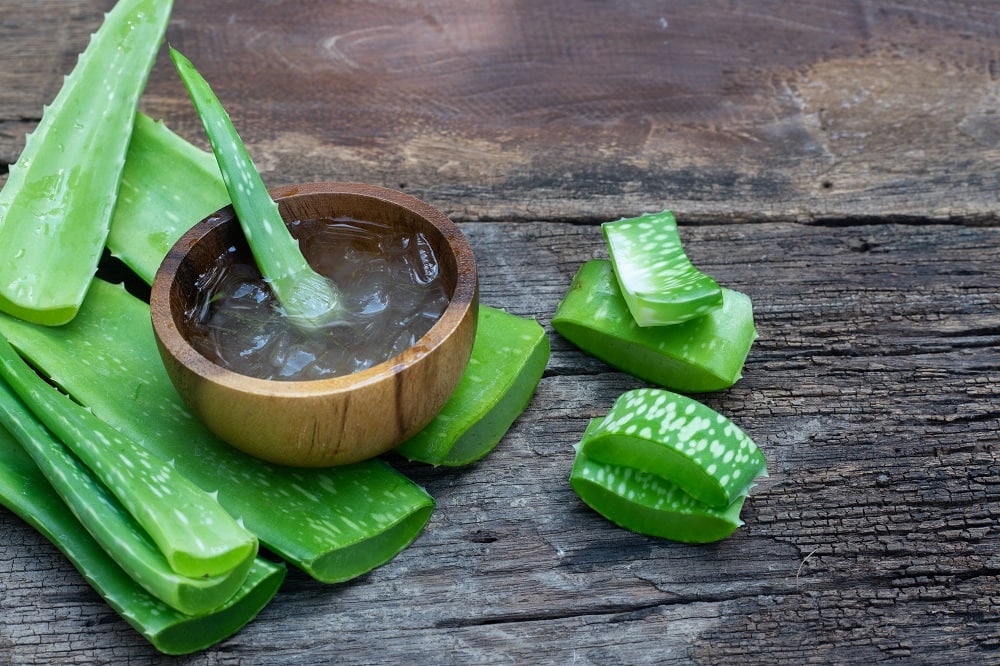
Exfoliating your scalp can help to remove any built-up product residue or dead skin cells. When choosing your non-abrasive scrub, ensure they come with natural ingredients such as aloe vera or tea tree oil. This type of exfoliation will help to reduce the risk of further damage and irritation.
5. Cover Your Hair
They may not look the best or the most comfortable, but covering your hair with the proper amount of heat protectant spray while using a blow dryer or curling iron is a must. This will prevent heat damage and reduce the risk of scabbing.
5. Consult Your Stylist
While at-home bleaching is more common than ever, going to the salon for a professional service can help to reduce scab scalp after bleaching. A stylist will use quality products and take the necessary steps to prevent damage.
They can also provide the best tips on heat protection products suitable for your hair type after the bleaching process is over.
How To Treat Scab Scalp After Bleaching
If you’re on the other side of things, and avoiding scabs is no longer an option, there are a ton of ways you can improve your condition and treat it accordingly. Below we include some tips you can apply by yourself and in collaboration with your hairstylist to slow down scabbing.
Use a Gentle Cleanser
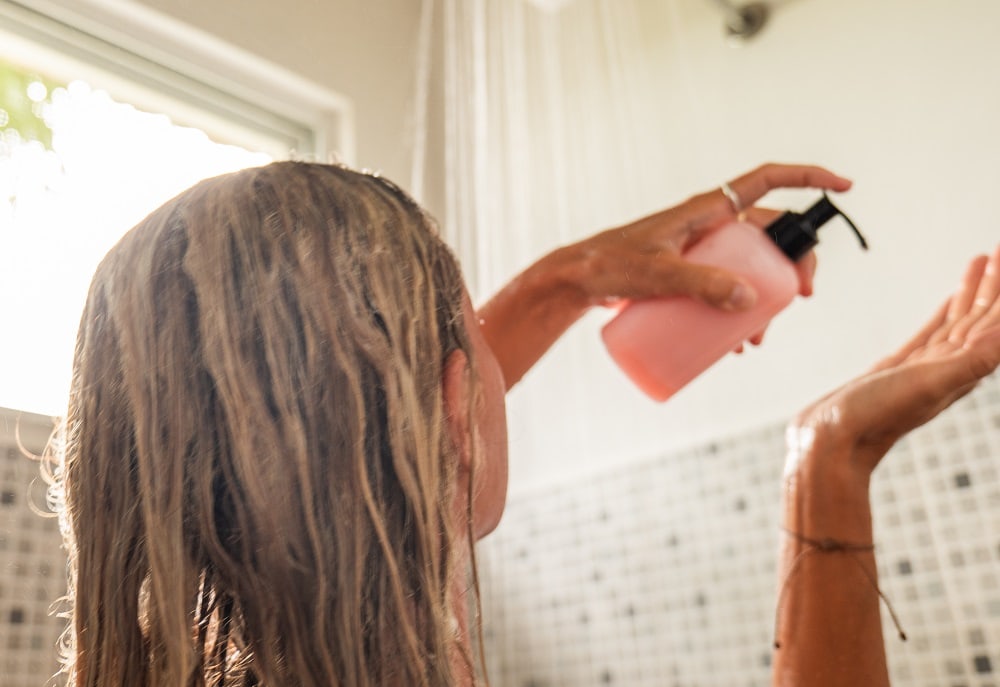
A gentle, sulfate-free cleanser can help soothe and hydrate your scalp. There are products specifically designed for sensitive scalps, go get one of those.
Whether you use a shampoo or a leave-in hair conditioner, the product you choose must have natural ingredients free of sulfates, parabens, and silicones.
Use a Steroid-Free Anti-Inflammatory Cream
Scabs can be painful, and the treatment process may require an anti-inflammatory cream. Look for a steroid-free cream, such as hydrocortisone, to reduce inflammation and help your scalp heal.
Treat with Aloe Vera or Tea Tree Oil
Natural products can help to reduce itchiness and irritation. If you apply tea tree oil or aloe vera cream directly to your scalp, it will go a long way in improving your condition.
Just remember to avoid the roots and length of your hair. Always use a diluted version of these oils, as concentrated solutions can be too harsh for the scalp.
Apply Healing Balms
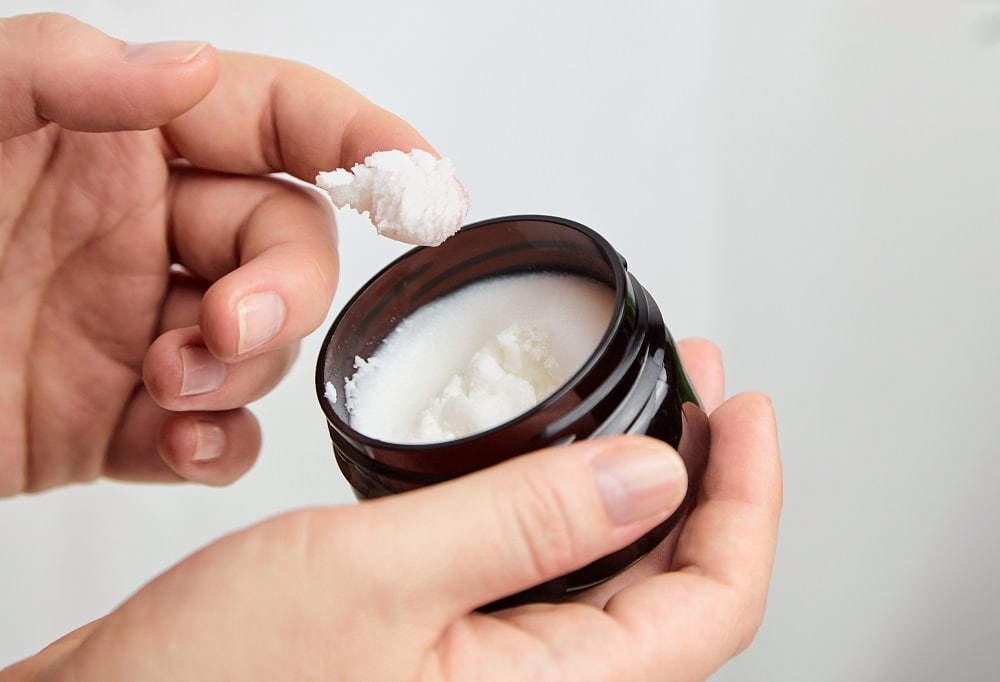
Healing balm can also help to accelerate the healing process. To nourish the skin on your scalp and decrease irritation, look for products designed with natural components such as beeswax, cocoa butter, and shea butter.
Use Moisturizing and Medicated Products
Look for moisturizing shampoos and conditioners that contain tea tree oil or menthol. These ingredients can help reduce inflammation.
You can also look for medicated shampoos and creams that contain antifungal or antibacterial ingredients. These products can help prevent infection and relieve itching.
Keep Your Scalp Clean and Moisturized
Clean and hydrated skin accelerates healing, reduces inflammation, and prevents infection.
Scabs can also go away easier if the skin is supple and hydrated. Regularly applying a moisturizer to your scalp, such as shea butter or cocoa butter, can help to reduce dryness and heal quicker.
Avoid Scratching or Picking the Scabs
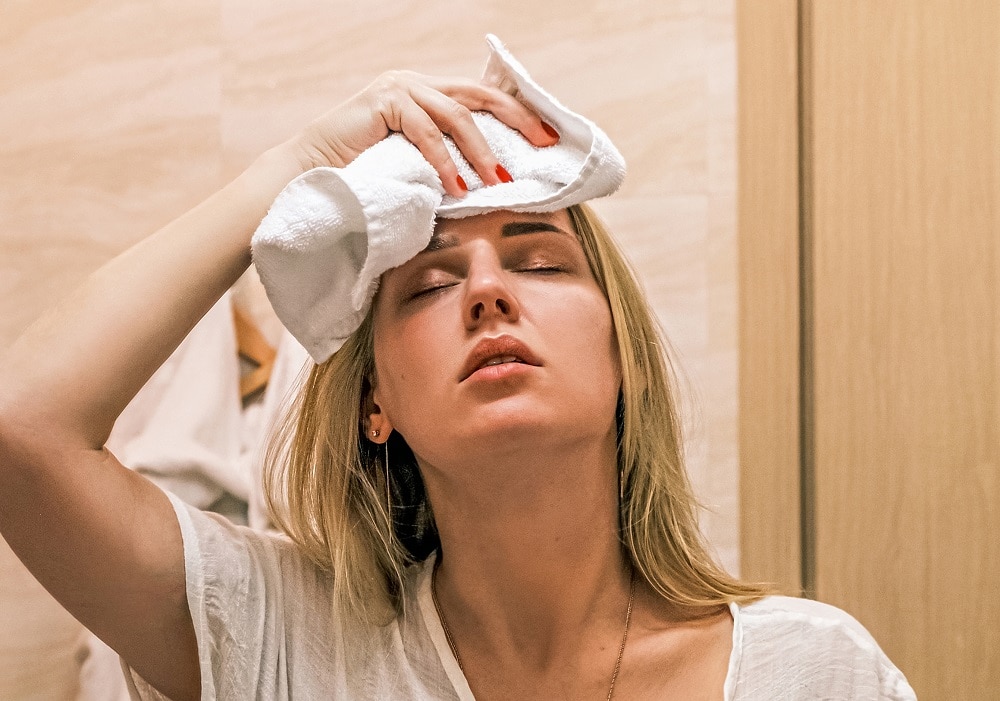
As hard as it can be, It is critical to avoid scratching or picking scabs. Not doing so, will only further irritate and damage the scalp. If you scratch the area, it may take longer for the scab to heal, which increases the chances of infection or scarring.
You can search for a cold compress or anti-itch cream to prevent yourself from scratching.
Be Careful with Styling Products
Avoid using hairspray, gel, or mousse. These products can aggravate your scalp and worsen the issue.
Only choose high-quality styling products that help alleviate irritation and inflammation. For example, products with natural components like lavender are much more apt to treat scabs.
Consult a Dermatologist
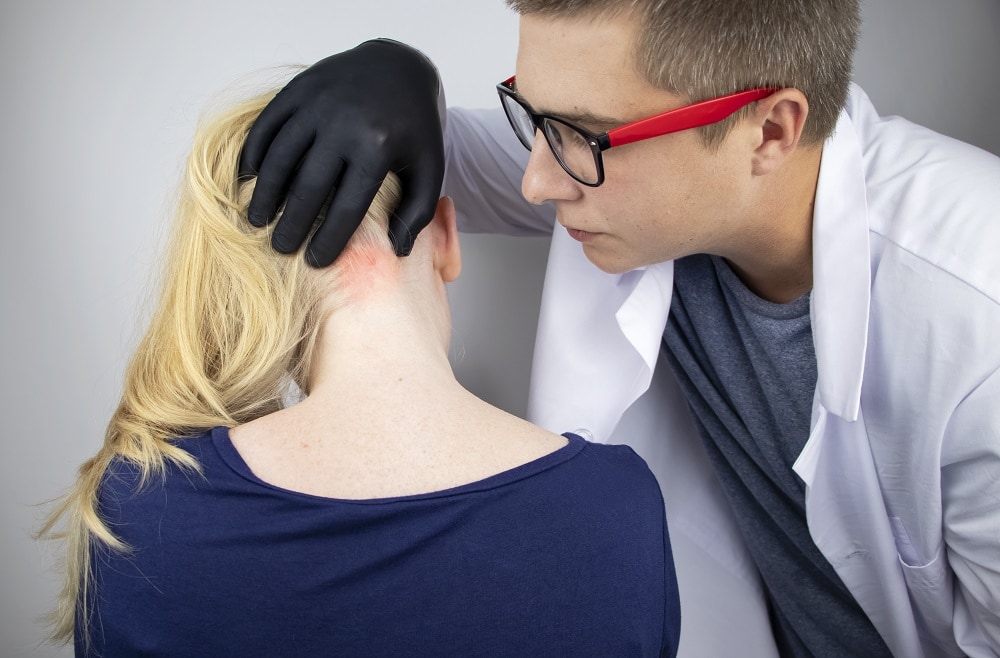
If nothing above works and scabs on the scalp from bleach persist, it is critical to consult a dermatologist. They can diagnose any underlying conditions and recommend the best treatment.
If your scabs are not healing for whatever reason, a doctor may use a topical treatment or oral medications to help manage your symptoms. These prescriptions can help reduce inflammation and relieve pain in your scalp.
How Long Does It Take To Heal Your Scabs on Your Scalp After Bleaching?
Your healing time will vary depending on your circumstances. You can feel the changes often within a few days or weeks if you follow the above treatments and you treat any other issues properly. But, It may take up to a month or more for the scabs to heal fully.
If the scab persists and does not appear to be mending, you should always consult a doctor. They can recommend treatments or products that help hasten the recuperation process.
So, scabs on the scalp after bleaching are not a normal occurrence. You can prevent it by using gentle, sulfate-free cleansers and moisturizing products.
To treat scabs on the scalp, consider using steroid-free anti-inflammatory creams, aloe vera or tea tree oil, healing balms, and moisturizing products.
If the scalp scabs persist for more than a few weeks after bleaching, it is important to consult a dermatologist for further assessment and treatment.

